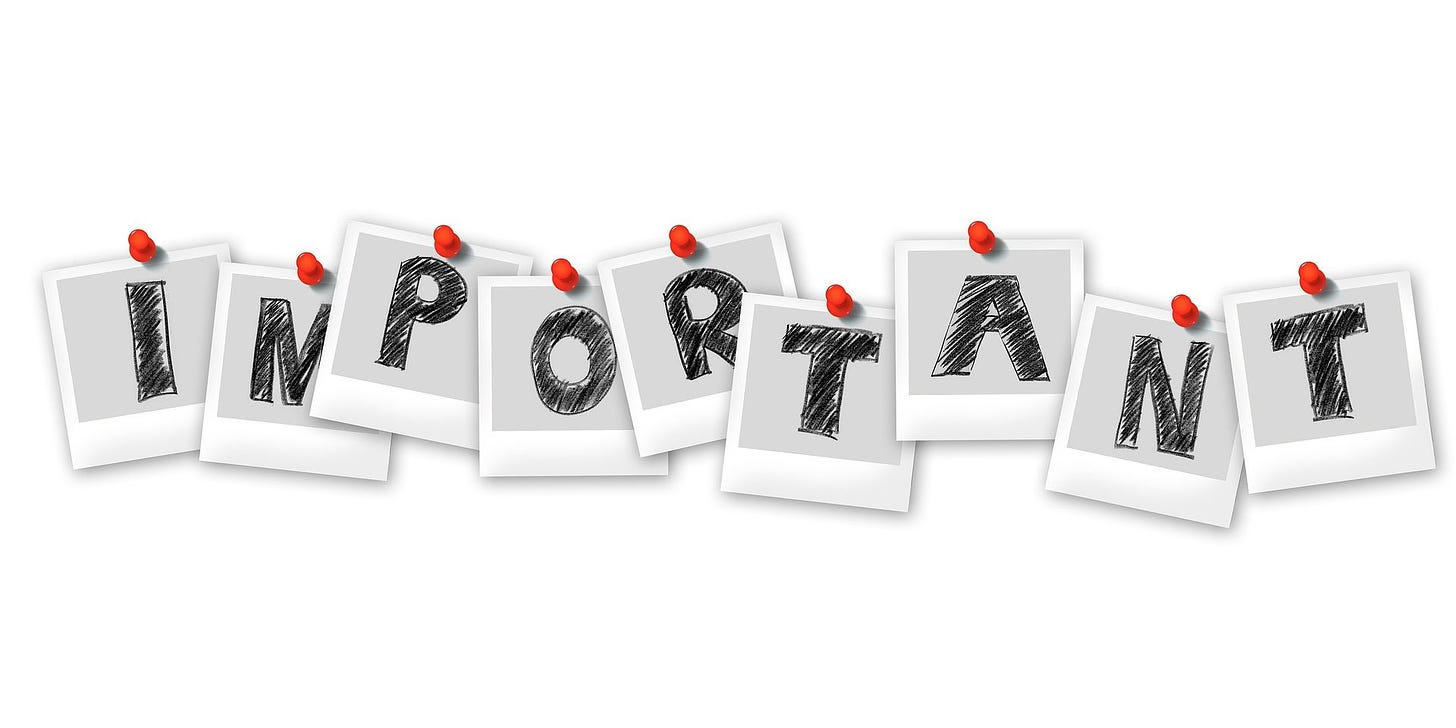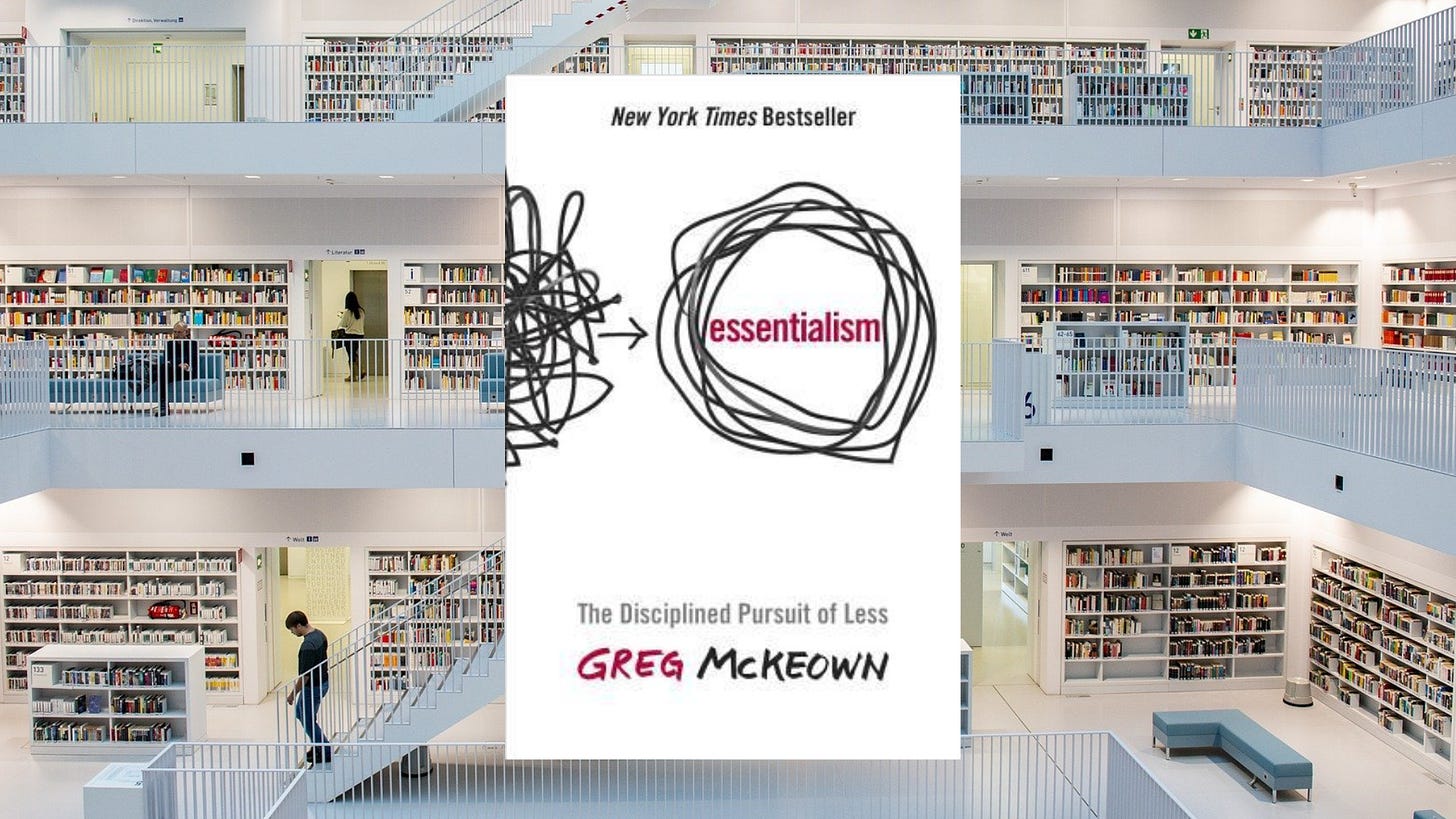Only a Few Things Actually Matter
Your real life begins once you figure out what those things are
“The overwhelming reality is: we live in a world where almost everything is worthless and a very few things are exceptionally valuable."
-Greg McKeown, Essentialism
The 80/20 Principle asserts that a minority of causes, inputs, or efforts usually lead to a majority of the results, outputs, or rewards.
Crucially, however, this doesn't just apply to economics or business; it also applies to the meaning of our entire lives and what we choose to do with them.
Especially in the internet age, where there are billions upon billions of web pages, streaming services, news sites, and more all vying for our limited attention, what we should pay attention to is becoming harder to discern, and the noise-to-signal ratio is becoming ever more skewed to the side of noise.
Within that whole mess, we lose sight of what actually matters, if we were ever able to pinpoint it at all.
The 80/20 Principle (also called the Pareto Principle), when applied to meaning in life, could reasonably be stated as:
“1% of all the things we could be doing will be responsible for 99% of the value of our lives.”
But because it's so much easier today for people and organizations to reach us with their opinions about what we should be doing with our lives and attention, it's getting harder and harder to find that signal in the middle of all that noise.
There are just too many things in the world.
Recognizing the reality of this is the first step toward becoming an Essentialist.
Essentialists, by definition, focus their limited time and attention on the activities and pursuits that are going to yield the most meaning, the highest rewards, and the largest returns on investment.
They know that almost everything doesn't mean anything, but they also know that there are still a large number of valuable things that are drowned out by all this inconsequential nonsense.
Even though, statistically, almost nothing matters, Essentialists realize that there are things out there that matter an exceptional amount, and it's their job to explore the world widely enough in order to find them.
The questions in the next section should help point you in the right direction.
“You cannot overestimate the unimportance of practically everything.”
-Kenneth Maxwell, leadership expert
The quality of your questions determines the quality of your life. That's also how you get the absolute most out of any book that you decide to read:
You ask great questions the whole time - as though the book was on trial for its life.
So what I’ve done here at the end of this article is put together some questions you can ask that will help you narrow in on what is MOST important to you in life.
Your answers will change as you get older, so make sure to refer back to this piece in, oh, I don’t know, 10 years :)
But seriously, these are great questions you can refer back to pretty much any time to make sure you’re headed in the right direction. For example, you could ask similar questions when you’re deciding whether to take a new job offer, start a business, or even pick a new sport to try.
#1: "If I could be truly excellent at only one thing, what would it be?"
#2: “What do I need to do with my life to be able to go to sleep peacefully?"
#3: “If I hadn’t already committed to this, would I agree to take it on?”
#4: "Am I investing in the right activities?"
#5: "If I weren’t already invested in this project, how much [time, money, energy] would I invest now?"
#6: "If I did not have this opportunity, how much would I be willing to sacrifice in order to obtain it?"
#7: "Will this activity or investment make the highest possible contribution toward my goal?"
#8: “How will I know when this project is done?”
#9: “What else could I do with this time or money if I pulled the plug now?”
#10: "What do I feel deeply inspired by?"
#11: "What am I particularly good at?"
#12: "What kind of pursuit meets a significant need in the world?"
#13: "What would I give just to be back here, in this exact moment in time, with this chance that I have now?"
It really doesn’t take much time to answer these questions, but the benefits are ENORMOUS.
They were slightly adapted from my complete breakdown of Essentialism, by Greg McKeown, which is an excellent book to read for anyone who is either somewhat directionless in life, or who just wants to get a better handle on their daily life and trajectory.
My breakdown is 10,000+ words, and it covers the biggest takeaways and key ideas, some action steps you can take, a detailed summary, etc.
It should take you just a little more than 30 mins to read the whole breakdown, and if you liked this article, you’ll definitely like that longer breakdown!
But hey, that’s it for now, and thank you for reading!
I’ll be back very soon with more to help all of us make big moves forward in life and work. I’m with you.
All the best,
Matt Karamazov
P.S. That breakdown of Essentialism is just one of fifty (50) free book breakdowns that you can find right here at the Stairway to Wisdom.
The paid version also comes with a premium newsletter and a new book breakdown every week. Try it for free with a 14-day trial.






